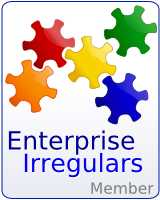ABC News Blogs vs. Blotter
Anyway, I had the chance to speak with some folks who worked at ABC and asked them, "and why exactly is this not a blog?" I was actually satisfied with the answer, which was essentially something like this: First, ABC News has blogs, written mostly be reporters. The Blotter differs in that it is (should be) objective. The writers should use the same standards of journalism that they would in any other news story and present the facts and leave the personal biases out. My understanding of the reporters' blogs is that in these, reporters can be less objective and share more personal opinions.
Neither the blogs nor the Blotter are perfect, but it's nice to see that a mainstream news outlet is embracing social media and allowing for a conversation with its readers.
Note: I found Anderson Cooper's blog on CNN.com. Additionally, CNN has RSS feeds for pages e.g., Top Stories, World etc.





